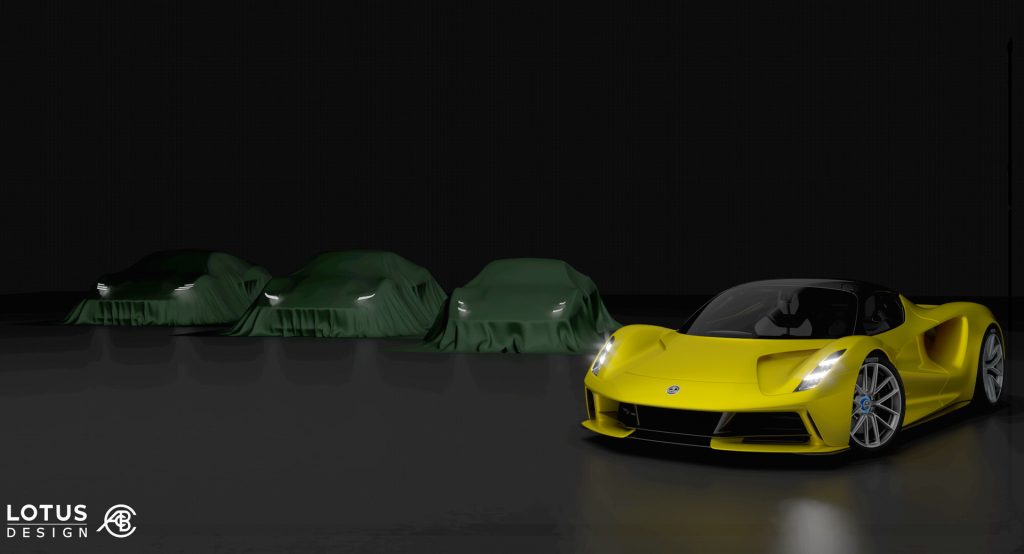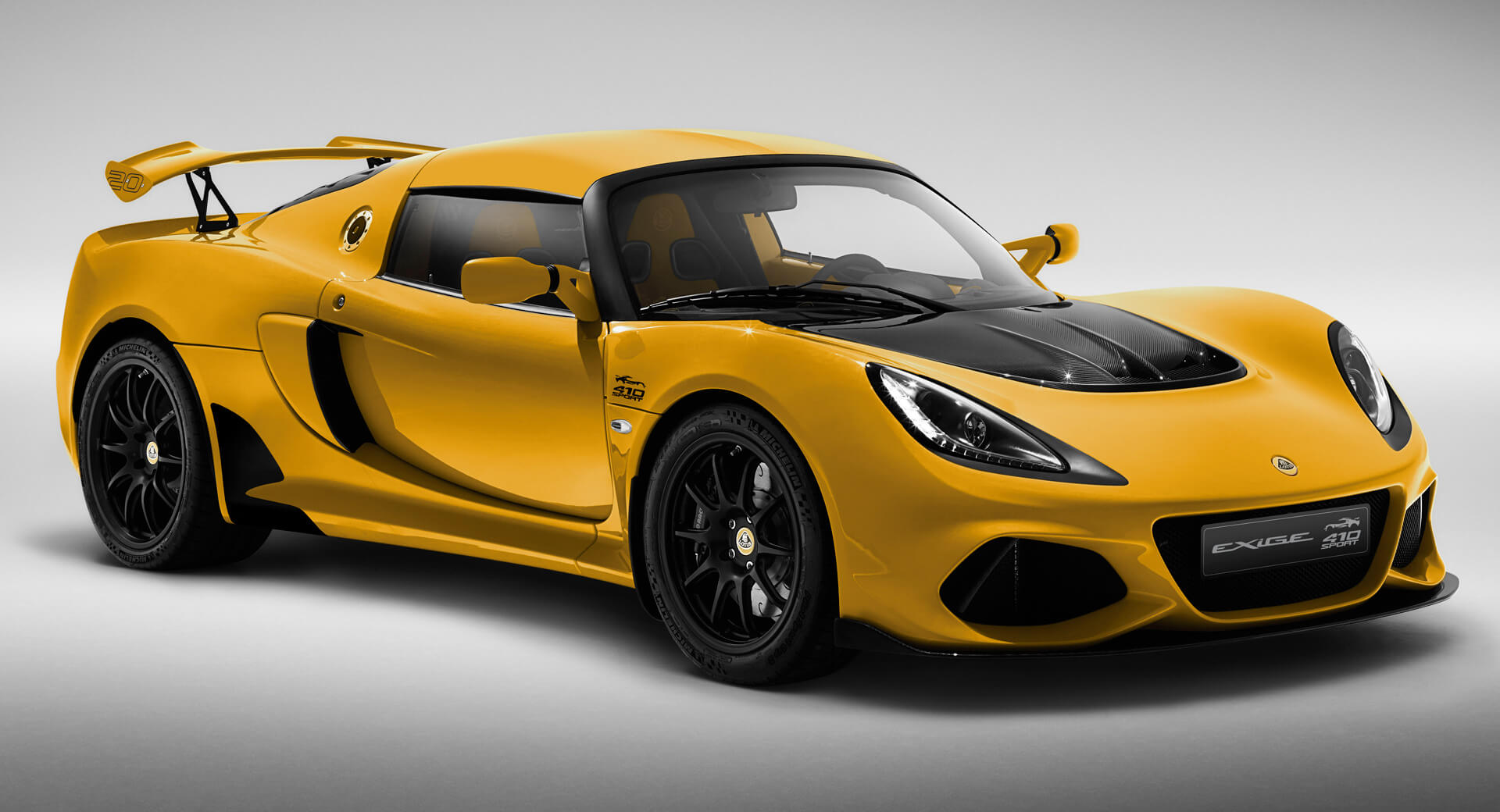Lotus has officially confirmed it will start building a new sports car late this year, together with an announcement that the Elise, Exige, and Evora are now in their final year of production.
Internally named as ‘Type 131’, the new Lotus sports car is reportedly going to be positioned above the Evora and will act as a spiritual successor of the Esprit, although it’s not yet confirmed if the new model will adopt the famous nameplate.
Read Also: All-New Lotus Sports Car To Be Unveiled This Summer With Production Set For 2022
The announcement came along with a teaser image, which depicts three new models under covers next to the electric Evija hypercar, which is also set to enter production this year. The three new models hint at the new generation of sports cars that will follow the Elise, Exige, and Evora.
The new Lotus sports car will be produced at the company’s revamped facilities in Hethel, UK. As part of the company’s ‘Vision80’ strategy, Lotus will relocate its two sub-assembly facilities into one central operation in Norwich in order to support higher volumes.
Lotus is also recruiting 250 new employees, in addition to the 670 it hired since September 2017, when Geely and Etika took ownership of the British carmaker. The new recruits are required for roles in engineering and manufacturing for both Lotus Cars and Lotus Engineering, with the latter also opening a new Advanced Technology Center in Warwick later this year.
The ‘Type 131’ is reportedly going to use a heavily revised version of the aluminum architecture currently found in the Elise, Exige, and Evora. It’s believed that the new sports car is going to retain the Toyota-sourced 3.5-liter V6 engine but Lotus is going to combine it with an electric motor and a battery pack. The output of the new electrified Lotus is rumored to be around 500 HP.
The new model’s arrival however signals the end of the line for Elise, Exige, and Evora. First revealed back in 1995, the Elise was revolutionary for the brand and the sports car segment thanks to its pioneering use of extruded and bonded aluminum, high-tech composites, and focus on lightness.
“As our Vision80 strategy illustrates, Lotus is all about looking forward, and our future is full of continuous innovation,” said Phil Popham, CEO of Lotus Cars. “In 2021, however, we will be reflecting on the legacy of our current range, starting with the Elise, a sports car that genuinely revolutionized the automotive industry, not only because it is a legend-in-its-own-lifetime but also for its impact on car design and technology.”







